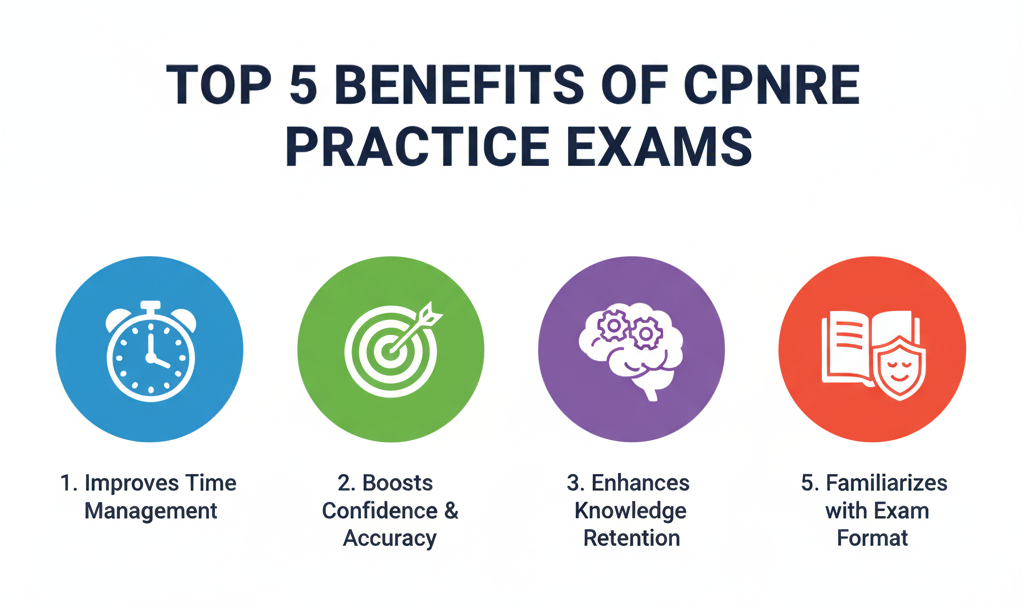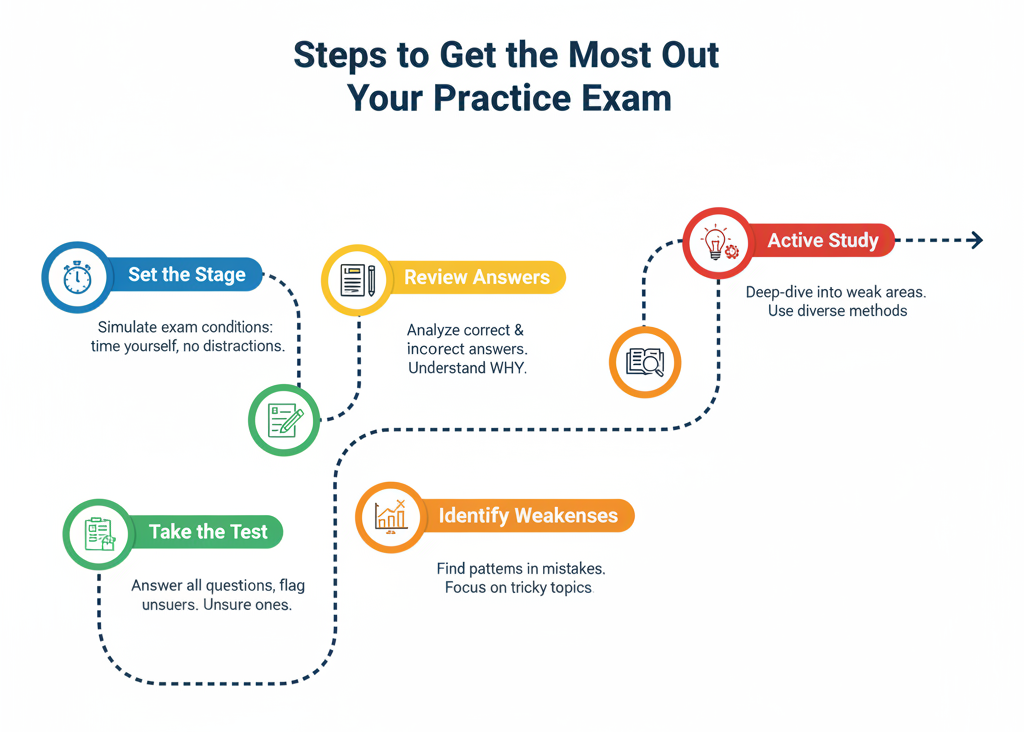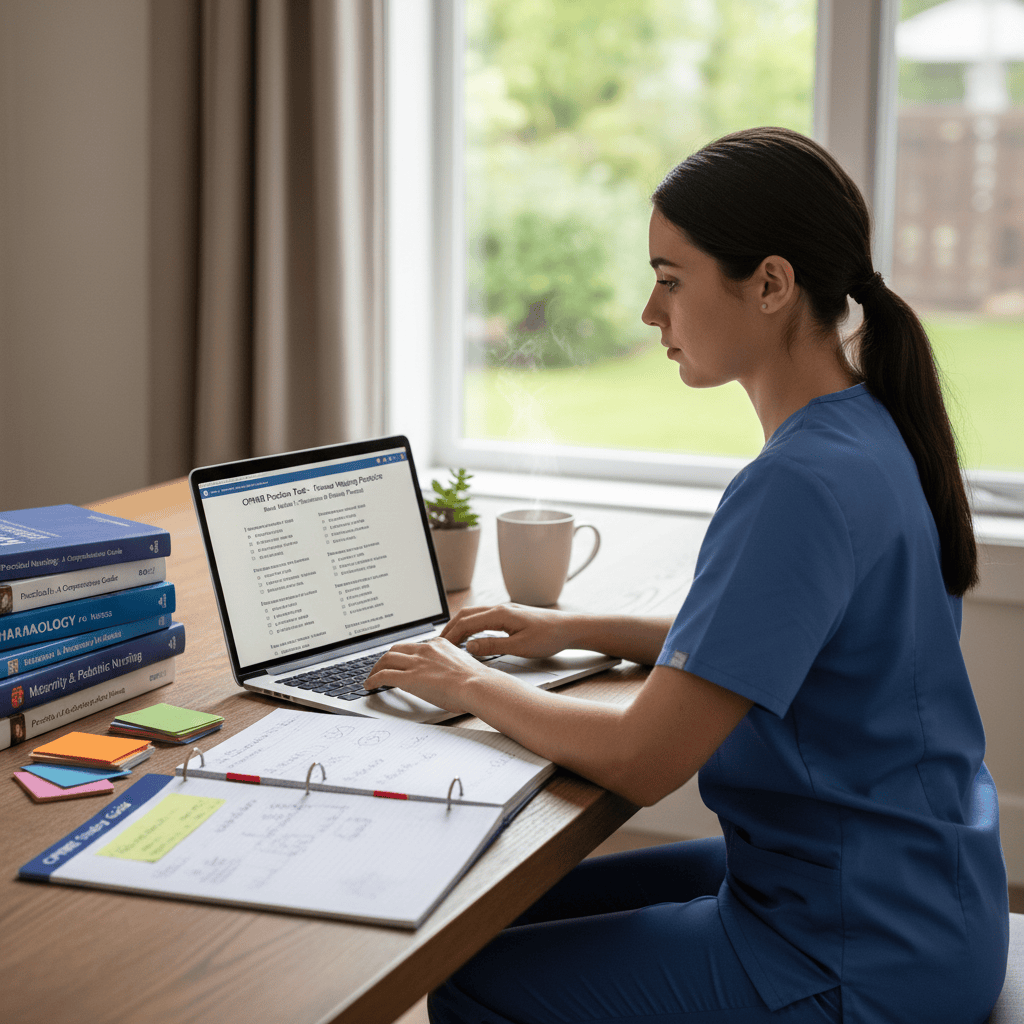Preparing for the Canadian Practical Nurse Registration Examination (CPNRE) is a significant milestone for practical nursing graduates. Passing the CPNRE is the final step before becoming a licensed practical nurse in Canada, which means the pressure is high.
While textbooks, notes, and study groups are helpful, nothing prepares you better than a CPNRE practice exam. Practice tests replicate the exam format, assess your readiness, and help you refine test-taking strategies. In this comprehensive guide, we’ll dive into the top reasons to take a CPNRE practice exam, answer common student questions, and share tips to maximize your preparation.
Why CPNRE Practice Exams Are Essential
The CPNRE is not just about memorizing facts, it measures your ability to apply nursing knowledge to real-life patient scenarios. That is why practice exams are more than just a study tool. They are a simulation of the real test, offering insights into your readiness while reducing stress and uncertainty.
Think of practice exams as your “trial run.” Just like athletes scrimmage before the championship or musicians rehearse before a concert, nursing students benefit from simulating the exam before the actual test day. Many nursing graduates also explore resources on CPNRE smart preparation to refine their strategies and build exam confidence.
Benefits of Taking a CPNRE Practice Exam
1. Gain Familiarity With Exam Format
The CPNRE has a specific structure: multiple-choice questions that assess application, not just recall. Many students are caught off guard by scenario-based questions.
By practicing in advance, you will:
- Understand how questions are phrased.
- Recognize common patient-care scenarios.
- Develop strategies for ruling out distractors.
This makes the actual test feel more like “familiar territory” instead of a mystery.
2. Identify Strengths and Weaknesses
A practice exam serves as a diagnostic tool. After completion, reviewing your performance shows where you excel and where you need more work.
- Scored high in pharmacology? Great, move on to other areas.
- Struggled with ethical decision-making? That’s a cue to revisit guidelines and standards.
This approach helps you study smarter, not harder.
3. Reduce Test Anxiety
Test anxiety is one of the top reasons students underperform. A practice exam mimics real testing conditions, which helps calm nerves by:
- Making the exam environment familiar.
- Building confidence in your ability to finish on time.
- Training your brain to stay calm under pressure.
Students who take practice exams often report lower anxiety and more confidence on the real exam day.

4. Build Time-Management Skills
The CPNRE is timed, and pacing is crucial. Many students either rush and make careless mistakes or spend too much time on tricky questions. Practice exams train you to:
- Allocate time wisely per question.
- Avoid overthinking and second-guessing.
- Finish with time to review answers.
5. Improve Critical Thinking
The exam focuses heavily on decision-making in patient scenarios. Practice tests force you to apply clinical reasoning, not just recall facts.
For example:
- A patient presents with shortness of breath—what’s your first priority?
- A resident refuses medication—what’s the appropriate intervention?
Practicing these scenarios builds the quick decision making skills needed in both exams and real nursing practice.
6. Track Progress Over Time
Taking multiple practice exams provides measurable progress. You will see improvement in your score, speed, and confidence. Tracking results shows when you are truly ready for the real test.
7. Learn How to Eliminate Wrong Answers
One of the biggest skills in multiple choice exams is identifying distractors. Practice exams sharpen this skill by teaching you how to:
- Recognize implausible answers.
- Compare options logically.
- Avoid traps designed to confuse.
8. Boost Confidence on Exam Day
Confidence is half the battle. Walking into the exam hall knowing you have already practiced under real conditions gives you a psychological edge. You will feel prepared, focused, and ready.
Comparing Study Approaches
| Method | Benefits | Limitations Without Practice Exams |
| Reading textbooks | Builds strong theoretical foundation | Doesn’t test application of knowledge |
| Flashcards & summaries | Improves recall of facts and terms | No exposure to complex patient scenarios |
| Group study sessions | Encourages peer discussion & support | May lack exam-style structure |
| Practice exams | Simulates real test, feedback, pacing skills | None—covers both knowledge and application |
How to Maximize the Value of Your Practice Exam
To make your practice exam experience effective:
- Simulate exam conditions: Quiet environment, strict timing, no interruptions.
- Analyze results deeply: Don’t just look at your score, understand why you got questions wrong.
- Reinforce weak areas: Go back to textbooks, notes, or online modules to strengthen problem areas.
- Repeat tests: Consistency builds mastery.

FAQs About CPNRE Practice Exams
1. How many practice exams should I take before the CPNRE?
Most students benefit from at least 2–3 full-length practice exams. More can be helpful, especially if you want to track progress over time.
2. Are practice exams exactly like the real CPNRE?
No practice exam can copy the real test word-for-word, but high-quality practice exams are designed to mirror the style, structure, and difficulty of real exam questions.
3. When should I start taking practice exams?
Ideally, begin once you have completed your initial study. Taking a practice exam too early may discourage you. Most students start 4–6 weeks before the real exam.
4. What score on a practice exam means I’m ready?
While there is no guaranteed cut-off, consistently scoring above 70–75% on quality practice exams suggests you’re on track for success.
5. Do practice exams also teach content, or just test it?
Good practice exams are learning tools. By reviewing explanations for each answer, you reinforce knowledge while improving test-taking skills.
6. Can practice exams reduce test-day anxiety?
Yes. Familiarity is the best cure for nerves. When you have taken practice exams, the real test feels less intimidating.
7. Are online practice exams reliable?
That depends on the provider. Always choose a reputable platform like Sulcus Learning, which designs exams with expert nurse educators to ensure accuracy and relevance.
Final Summary
Taking a CPNRE practice exam before the real test is one of the smartest ways to prepare. It helps you:
- Understand the exam format.
- Identify strengths and weaknesses.
- Build confidence and reduce anxiety.
- Practice critical thinking in patient scenarios.
- Improve time management and pacing.
By combining practice exams with your study resources, you will approach test day with the knowledge, confidence, and strategies needed to succeed.

